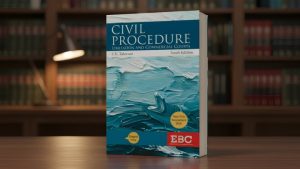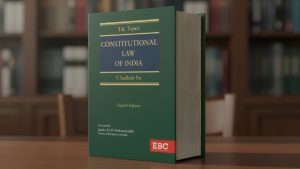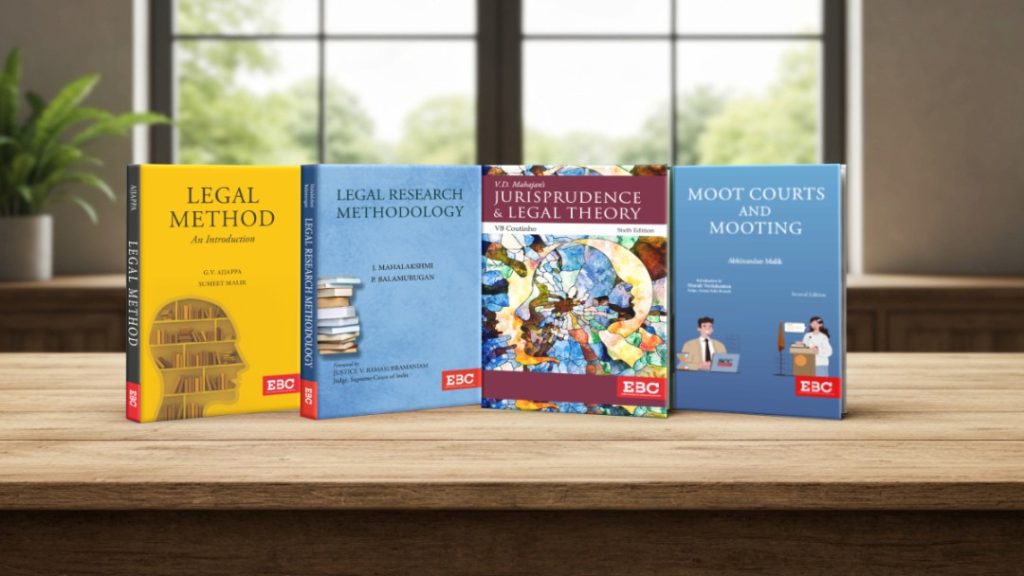
Looking to build a strong foundation in court processes and legal systems? Here’s a curated list of the best books that simplify practice and procedure for law students, aspirants, and budding practitioners.
Judgments and How to Write Them
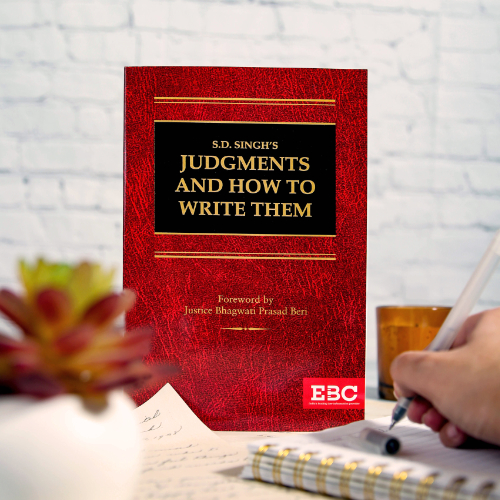
- Updated Edition of a Classic: A thoroughly revised and updated version of a widely acclaimed work on judgment writing, retaining its original clarity and structure.
- Expert Contributions: Features insightful articles by eminent jurists including Justice R.V. Raveendran, H.R. Khanna, and Justice M. Jagannadha Rao on judgment writing and the role of judges.
- Practical Guidance: Includes model civil and criminal judgments, key Supreme Court references (e.g., Saheli Leasing Case), and tips for aspiring judges.
- Accessible Style: Presents complex legal concepts in a simple, coherent manner, making it ideal for students, judicial aspirants, and practitioners alike. Learn More
V.D. Mahajan’s Jurisprudence and Legal Theory
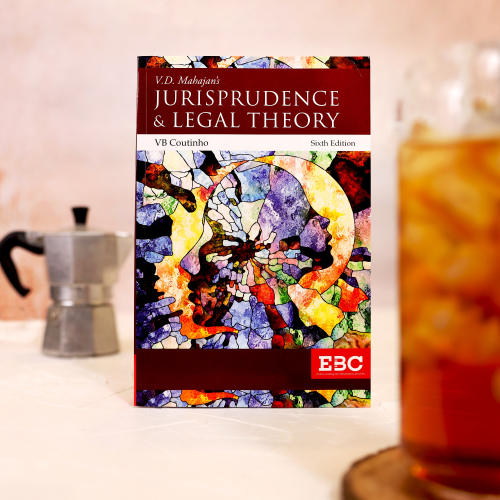
- Comprehensive & Updated Edition: Revised and expanded to reflect modern developments, with extensive references to Indian case law and a broader understanding of jurisprudence beyond classical definitions.
- Clear and Accessible Language: Explains complex legal concepts and theories, including sources of law, in a manner suitable for students and general readers.
- Structured Coverage of Key Topics: Includes detailed chapters on legislation, precedent, custom, rights and duties, ownership, possession, legal personality, liability, and a newly added chapter on feminist legal theory.
- Enhanced Academic Features: Each chapter includes suggested readings; the book also offers an exhaustive index to support academic and exam-oriented use. Learn More
Law and Social Transformation
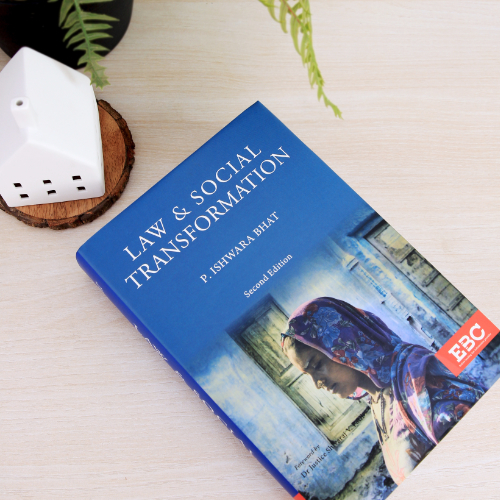
- Comprehensive & Updated Edition: Revised to include recent case laws and a new chapter on the social and legal impact of COVID-19, reflecting ongoing developments in Indian society and law.
- Clear and Accessible Language: Presents complex interactions between law, society, and the Constitution in an engaging, understandable style for students and general readers.
- Structured Coverage of Key Topics: Divided into four parts covering India’s legal evolution, law’s role in religion and ethnicity, rights of marginalized groups, and law’s influence on modernization and globalization.
- Wide Audience Appeal: Useful for law students, scholars, lawyers, judges, social activists, policymakers, and anyone interested in the dynamic relationship between law and social transformation. Learn More
Moot Courts and Mooting
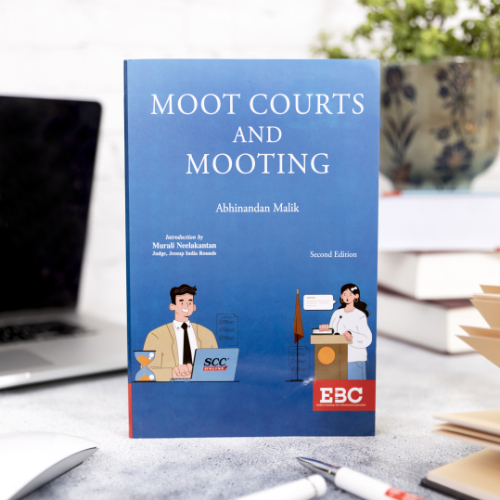
- Updated Edition: Thoroughly revised to include detailed legal research methods, new moot problems, and analysis of memorials.
- Comprehensive Coverage: Guides through all moot court stages—from understanding problems and drafting memorials to delivering effective oral arguments.
- Core Topics: Explores the history and formats of mooting, organisational roles, step-by-step research and drafting, courtroom etiquette, and managing difficult judges.
- Special Features: Practical tips from experts, focus on drafting strong memorials and oral submissions, Q&A format for easy reference, plus sample problems and official score sheets. Learn More
Legal Language, Legal Writing & General English
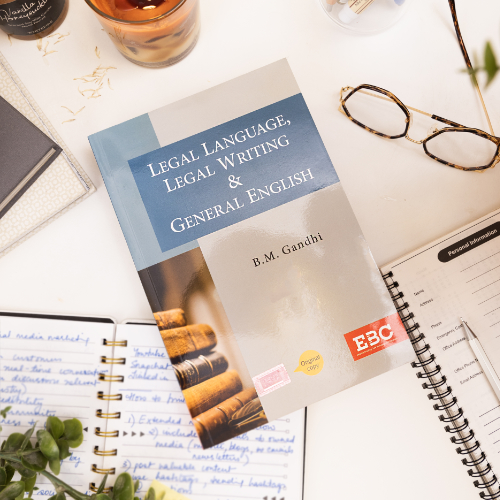
- Comprehensive Text for Law Students: Designed to cover legal language, writing, and foundational skills essential for law studies and entrance exams.
- Key Focus Areas: Legal vocabulary, grammar, word formation, drafting, communication, case comments, and article writing.
- Practical Resources: Includes lists of legal terms, Latin phrases, punctuation rules, sample legal documents, leading case summaries, and important government and law-related references.
- Versatile Use: Ideal as both a textbook for beginners and a reference guide for advanced students and practitioners seeking to refine their legal language skills. Learn More
Legal Research: Approaches, Methods and Techniques
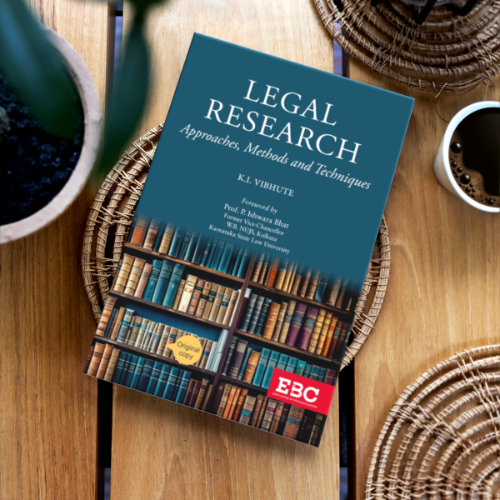
- Comprehensive Legal Research Guide: Explores fundamental approaches and techniques to conduct efficient and effective legal research.
- Structured Content: Divided into three parts covering basics of research, diverse approaches including non-doctrinal and transdisciplinary methods, and practical research techniques.
- User-Friendly Features: Chapters start with thematic quotes and clear learning objectives to enhance understanding.
- Valuable Annexures: Includes UGC Anti-Plagiarism Regulations, Self-Plagiarism Notification, and citation guidelines for academic compliance. Learn More
Legal Research Methodology
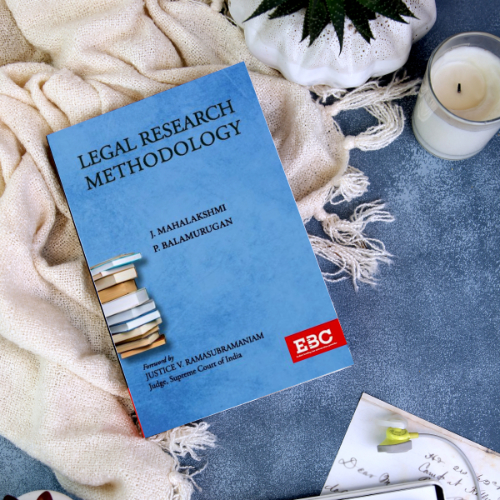
- Integral Role of Legal Research: Highlights the vital connection between legal research and the study and development of law as a discipline and profession.
- Key Objectives: Trains law students in analytical and critical thinking while promoting specialization through interdisciplinary approaches.
- Impact on Society: Emphasizes how legal research informs policy-making to build a fairer and more just society by linking theory with real-world applications.
- Broad Audience: Designed to benefit law students, lawyers, and judges by offering both theoretical knowledge and practical research methods. Learn More
P S A Pillai’s Jurisprudence and Legal Theory
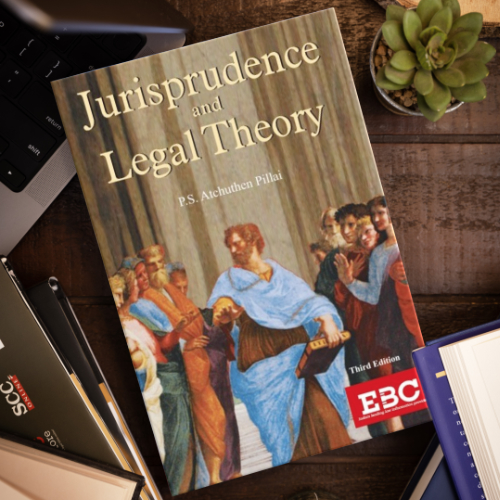
- Comprehensive Coverage: Encompasses all major developments in jurisprudence and legal theory, tailored to meet the syllabus requirements of Indian universities.
- Clarity Amid Complexity: Distills key jurisprudential principles from extensive case law and presents them in a clear and concise manner.
- Updated Content: Includes a thoroughly revised chapter on precedents, covering modern doctrines like prospective overruling.
- Scholarly Contribution: A significant and authoritative resource for understanding classical and contemporary legal theories by renowned jurists. Learn More
Legal Method: An Introduction
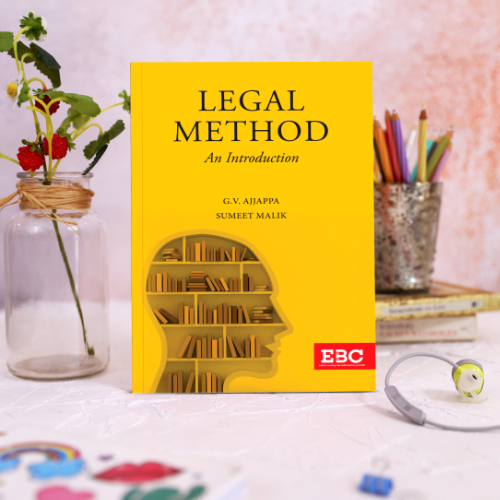
- India-Focused Introductory Text: Designed specifically for first-year law students in India, aligning with the Bar Council of India’s prescribed syllabus for Legal Method.
- Fills a Crucial Gap: Unlike foreign texts based on non-Indian legal systems, this book offers material tailored to the complexities of Indian law, including personal laws and customary practices.
- Well-Structured Content: Covers essential topics such as jurisprudence, nature and classifications of law, sources of law, the Indian legal system, common law, and how to use a law library.
- Expert Authors: Co-authored by Prof. G.V. Ajjappa, a veteran academician, and Mr. Sumeet Malik, legal editor and educator with extensive teaching experience in legal research. Learn More
Jurisprudence and Legal Theory
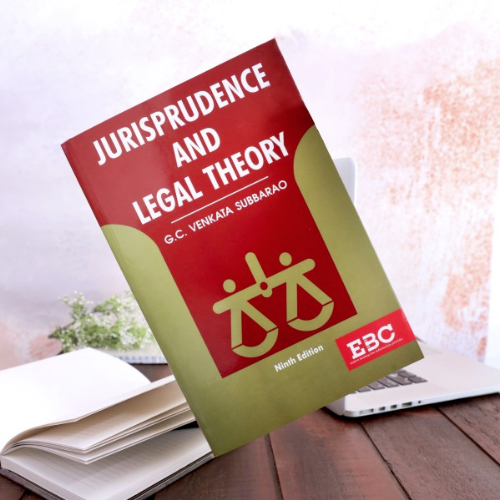
- Widely Prescribed Textbook: Adopted by many Indian universities as a standard text for Jurisprudence and Legal Theory courses.
- Authoritative Work: Written by a former Dean of Law at Osmania University, known for his contribution to standard legal texts in India.
- Curriculum-Aligned Content: Carefully structured to meet the academic requirements of law syllabi across Indian universities.
- Student-Friendly Approach: Provides comprehensive coverage for mastering the subject and offers guidance for further research and advanced study. Learn More











